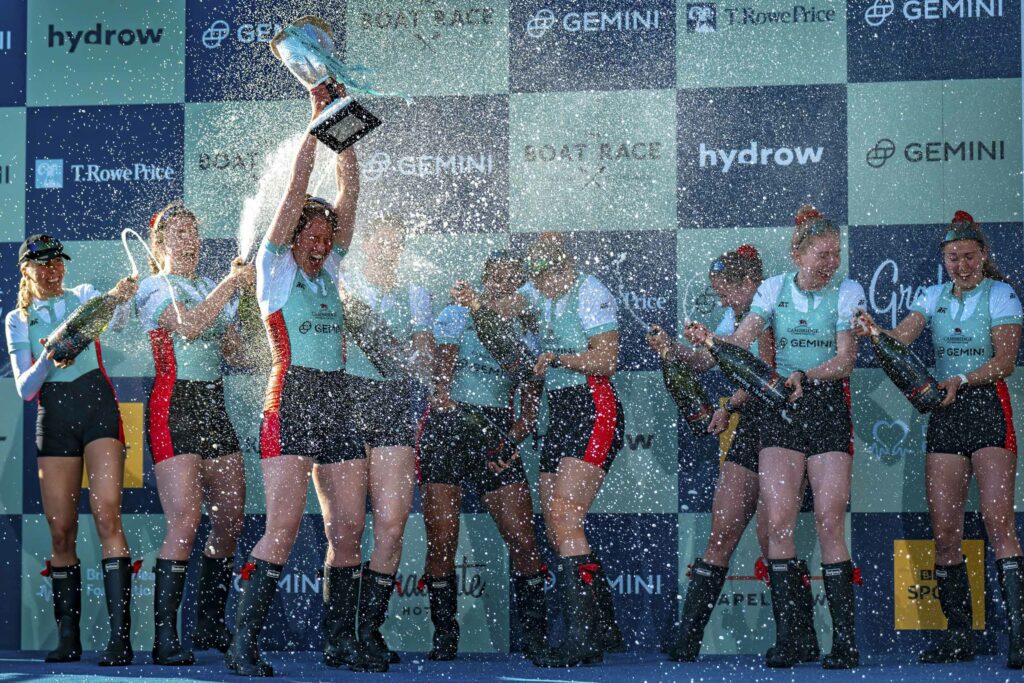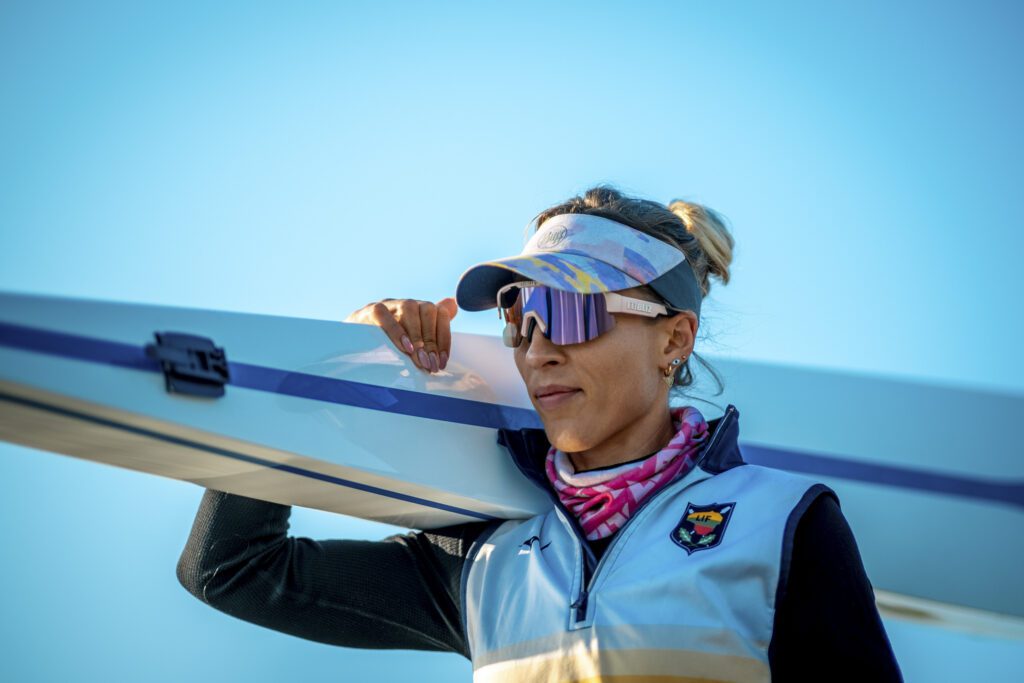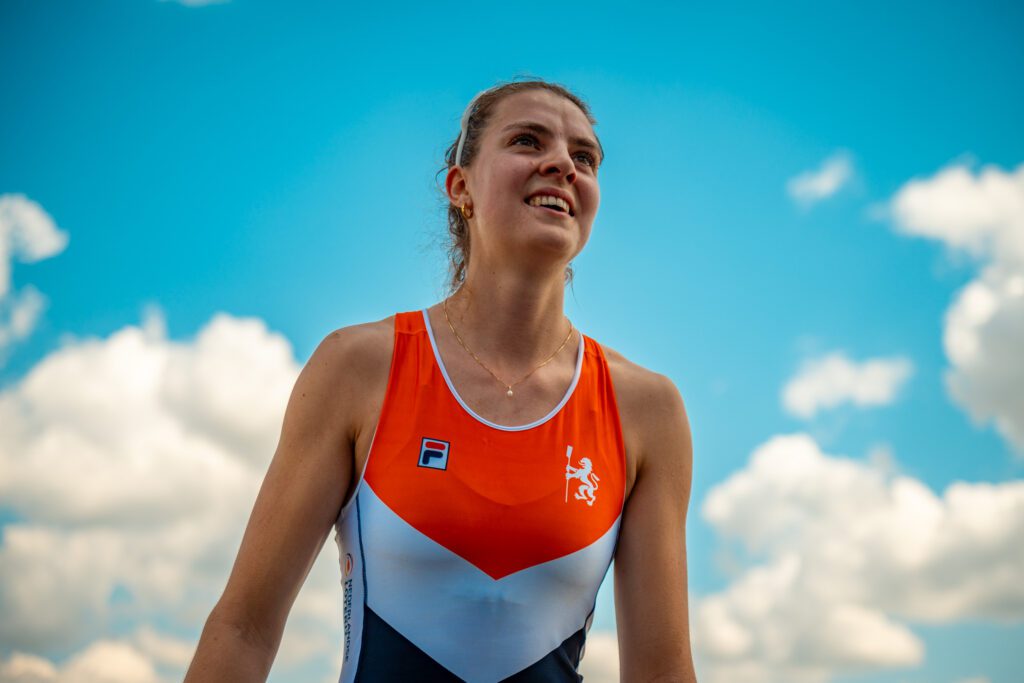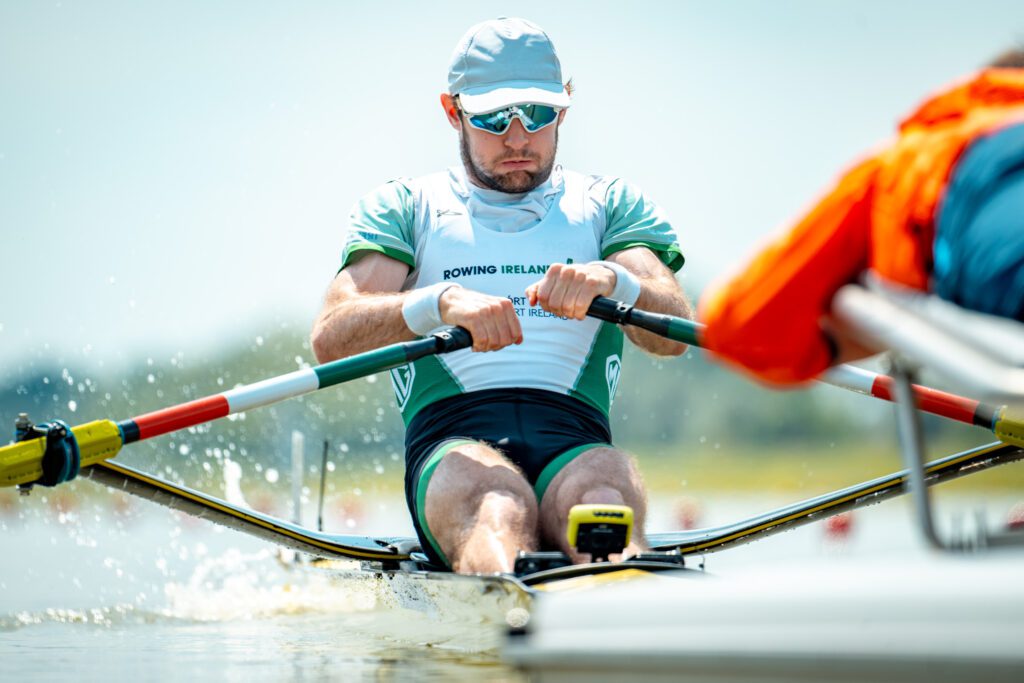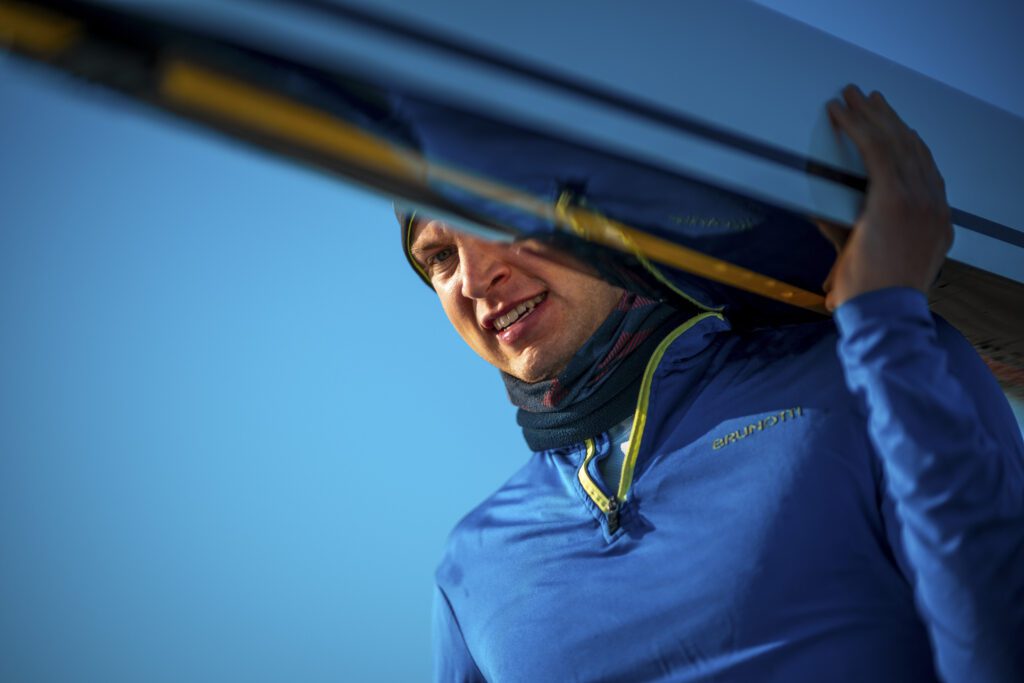Lucky number seven for the Cambridge Women. Seven unanswered wins for the Light Blues. How did the Oxford overdogs miss their mark? Attention has inevitably turned to the decision to go for a bump and Oxford cox Joe Gellett’s post-race appeal – yet early in the race Oxford had their chances. They came within a few feet of securing an unassailable lead and ending Cambridge’s winning streak.
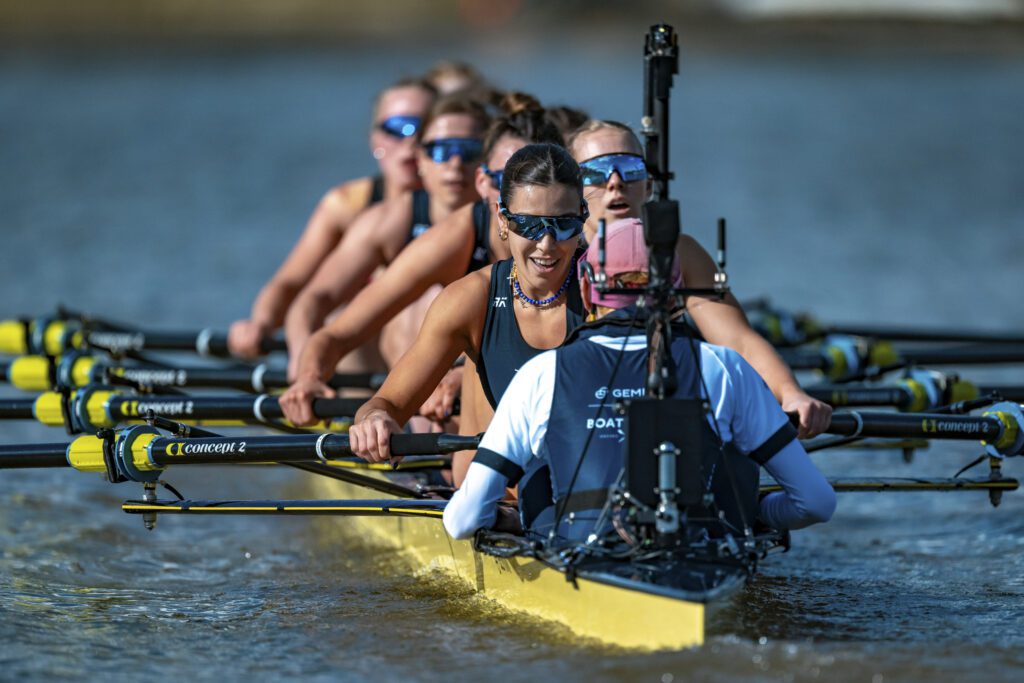
Photo Oxford Women stroked by Annie Anezakis
It all looked so rosy for the Oxford Women, they won the coin toss, chose Middlesex and, after Umpire Richard Phelps dropped the flag and said ‘Go!’, launched a blisteringly bright start. The Dark Blues soon slid into a third of a length lead before the first bend and extended it to a full length by the Mile Post.
Five minutes in and Oxford were poised to cut in front and nullify Cambridge’s long Surrey advantage: Effectively game over. It made uncomfortable viewing for Cambridge supporters; a seemingly inevitable changing of the guard fast approaching.
“I’m warning you Oxford!”
Richard Phelps
Cambridge cox Hannah Murphy urged her crew on, they barely held contact passing Harrods racing towards Hammersmith Bridge. Coinciding with their Surrey bend advantage the Light Blues finally hit their stride.
“We found our rhythm,” said Cambridge seven seat Clare Hole. “Once we pushed on to that mid-race pace, everyone bought in. Everything we did, we did together. And that’s what we set out to do.”
Momentum shifted dramatically. Cambridge pulled level and began turning the screw on Oxford. Another length stolen and now the Light Blues were almost breaking free as they passed Chiswick Eyot. Moments later Gellett went for the bump.
“I’m warning you Oxford!” Umpire Phelps bellowed, as Oxford veered into Cambridge.
“Holy **** they are really close to us!” thought Murphy, speaking after the race.
Her opposite number, hauled hard on the rudder strings first dragging his bows into the Cambridge stern and then away again. It was miraculous the blades did not clash.
“It happened so quickly, it wasn’t until the last second that I saw them,” said Hole. “I thought we’ve got to move, and as a crew we went. It’s such a blur now. It was, ‘Keeping the work in the legs and keeping going.’ Ten on the legs, ten on the hips, and we just flew!”
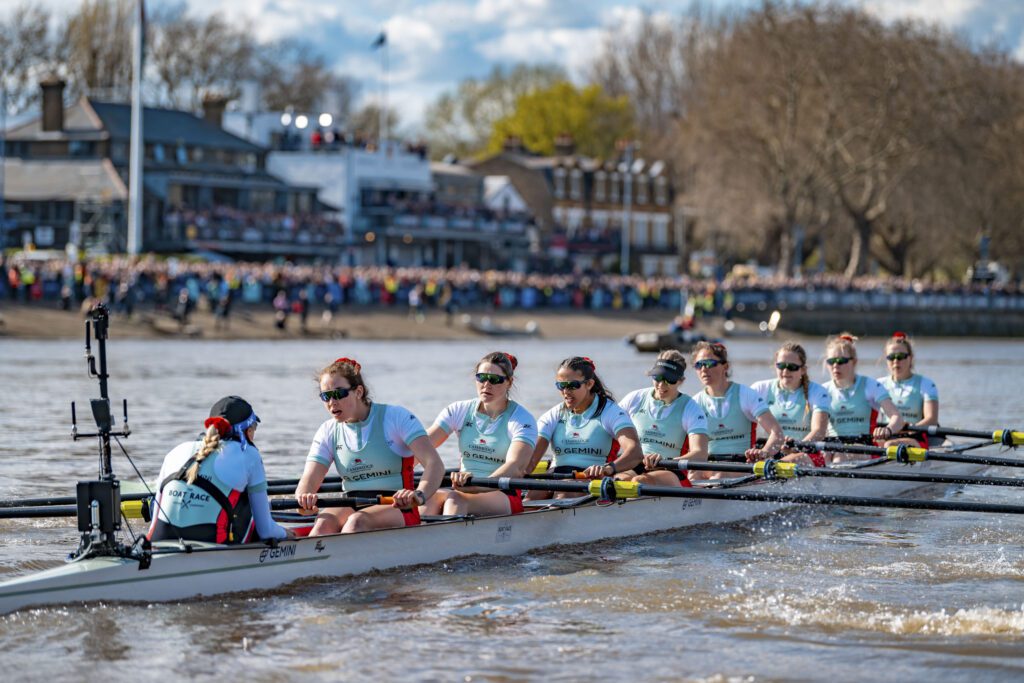
Photo Cambridge Women racing in front of the Putney embankment
Credit Benedict Tufnell
“I was confident that I was on my station,” said Murphy. “I was listening to the umpire. I was confident that we were moving away. Ultimately I was on our station. I didn’t want to move and disrupt our rhythm – but it’s a tough call, my main focus was getting us out of the situation and getting back to the rhythm as soon as possible.”
“I was nervous,” said Cambridge Women’s Head Coach Paddy Ryan. “We talked for the last two months about the rainfall and that the race was going to come down to the second half. I spent most of the second half of the race with my head in my lap going, ‘I just don’t know what’s going to happen!’ I thought that they rowed with the courage we asked for. Unbelievable!”
Oxford lost lengths from their failed attempt to get the Light Blues disqualified, and the remainder of the race was a line astern procession. Gellett appealed and there was a long wait while Phelps discussed the matter before raising the white flag to officially declare the result would stand: A win for the Cambridge Women by seven lengths.
“I trust Richard Phelps. He is one of the fairest umpires I’ve ever worked with,” said Cambridge Women’s President Jenna Armstrong. “That wait was long and painful, I’ll give you that. But I knew it would be long because Richard was making sure he made the right decision. And I knew that we didn’t do anything wrong.”
“Ten on the legs, ten on the hips, and we just flew!”
Clare Hole
A harried Gellett faced the press post-race and spoke uneasily about his decision.
“Cambridge were getting warned and had cut across in front of us. We’d discussed with the umpires before the race that if Cambridge come out of their water, cut ahead, and we make contact it will be a disqualification. I went to go make contact. With the appeal the Umpire Richard Phelps said it had happened in their water, not ours,” said Gellett. “From my perspective that was in the heat of the moment, and I trust the umpire’s decision.”
This was a race that Oxford could have won. Another near miss reminiscent of last year’s race, and one that Cambridge were more than happy to capitalise on.
